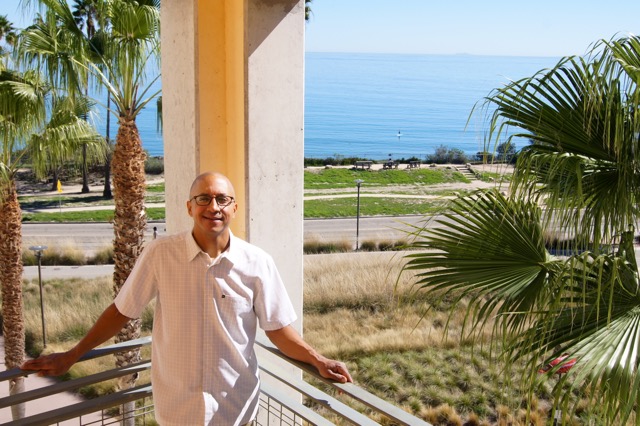
By Nicholas Apodaca, graduate assistant, Sustainability Office
Many of us who care about climate change and environmental justice take action in our daily lives to do our part: we recycle, use sustainable products, use public transportation or eat locally grown food. Yet often environmental problems play out at a larger scale, and while our personal actions can help in small ways, it is important to understand the forces at work in creating environmental hazards and injustice from the start. If we know where injustice begins, we can begin to make a change for the better.
Professor David Pellow of the University of California, Santa Barbara, is exploring new directions in environmental justice in his research. On April 16 from 4 – 5 p.m. in ASB 210, join him for his lecture, “Toward a Critical Environmental Justice: Exploring State Violence & the Settler Colonial Conflicts.”
Pellow began his research in Sociology and Environmental Justice in the 1990s when he completed his Ph.D. dissertation in Sociology, “Black workers in green industries: the hidden infrastructure of environmental racism,” at Northwestern University. He has since taught at Colorado, UC San Diego, and Minnesota, before arriving at UC Santa Barbara in 2015. There he is the Dehlsen Professor of Environmental Studies and Director of the Global Environmental Justice Project.
In his lecture, Pellow will explore new directions in the theoretical side of environmental sociology. He breaks it down into multiple approaches. First, he is attempting to further build on existing research that focuses on the intersection between environmental hazards and class, income, race, gender, citizenship and nationality. He sees these intersections as critical for developing nuanced solutions to the complex interactions that produce injustice. “[I am] trying to ask bigger questions about the role of government or the nation-state in producing and exacerbating environmental problems and environmental justice issues in the first place,” Pellow explains. The contradiction is one of “relying on some of the same institutions that are arguably creating the problem in the first place.”
Pellow is also concerned with questions of scale in environmental justice research. He sees environmental justice as an issue that affects us individually as well as globally. “Environmental hazards regarding academic and policy analysis must be approached as multi-scalar,” argues Pellow. “What happens at the micro scale is almost always revealed to be linked the community or national scale.” As no environmental issues exist in a vacuum, local and regional issues are just as “global” in consequence as environmental injustice outside of the United States. Often, we can find problems in our own neighborhood. Pellow’s recent research on oil refineries located in residential areas of Richmond, California illustrates this well, showing how global economic dynamics can lead to visible environmental impacts on real people.
Lastly, Pellow will explore the ethics of environmental injustice research.”The kind of environmental research I’m doing seeks to question the expendability of ecosystems, of habitats, and of marginalized human populations,” Pellow says. Pellow believes that environmental sociology shouldn’t simply seek to expose injustice, but should fight these notions of expendability. “It’s really about declaring, loudly, the indispensability (of marginalized people). It’s about saying every voice counts. Otherwise, it’s not a democracy.”
Should you too believe that every voice counts in the fight against environmental injustice, and have an interest in the cutting edge of environmental sociology research, come to ASB 210 on April 16 at 4 PM for David Pellow’s GCSC Seminar Series lecture, “Toward a Critical Environmental Justice: Exploring State Violence & the Settler Colonial Conflicts.”
